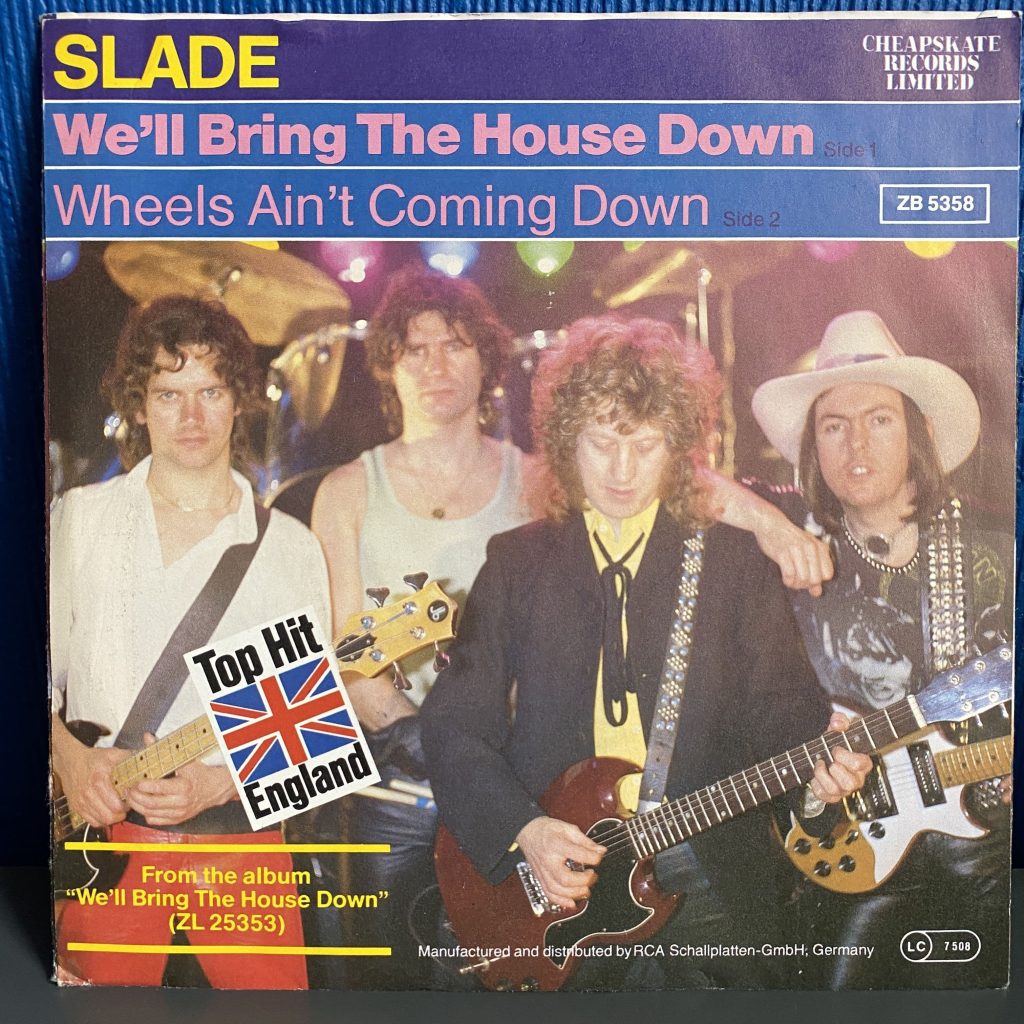
A Thunderous Anthem of Defiance, a Roaring Declaration of an Unstoppable Musical Comeback.
By the late 1970s, the glittering empire of glam rock had all but faded. For Slade, the kings of the era, the years had been unkind. The chart-topping hits had dried up, the once-unassailable band was playing smaller clubs, and they were widely considered to be a nostalgic act, a beloved but ultimately forgotten piece of the past. It was a dramatic and deeply painful fall from grace, a period of obscurity that pushed the band to the brink of a breakup. But in 1980, a twist of fate—and a legendary, last-minute performance at the Reading Festival—changed everything. Slade stormed the stage, and their electrifying, raw power proved that they were far from finished. This triumphant return became the inspiration for their 1981 album and its title track, “We’ll Bring the House Down.” Released as a single, the song was a resounding success, a glorious comeback that shot up the UK Singles Chart to a peak of number 10, proving that the old gods of rock and roll were back to reclaim their throne.
The story behind “We’ll Bring the House Down” is the most powerful kind of rock and roll drama—a tale of redemption. After their period of commercial decline, the band was tired of being counted out. The very title of the song is a direct and theatrical declaration, a powerful boast born from the raw energy of their live performance. The song is a theatrical monologue from a band that is angry, defiant, and full of a renewed sense of purpose. It’s a direct message to the fans who had stuck with them through the lean years and a warning to the music industry that had written them off. The lyrics are a simple, almost primal, expression of their confidence: “They said we’re a has-been / We’re coming back again.” This isn’t just hyperbole; it is a raw, emotional truth, the sound of a band fighting their way back from obscurity.
The musical structure of “We’ll Bring the House Down” perfectly amplifies its dramatic narrative. It begins with a simple, stomping beat and a powerful guitar riff, a sound that is both a call to arms and an unwavering statement of intent. The signature raw, guttural vocals of Noddy Holder are the perfect vehicle for the song’s defiant message. His voice, full of a lived-in grit and a triumphant roar, conveys the anger and the joy of a band that has been given a second chance. The chorus is a simple, anthemic chant that begs to be sung along to, a direct invitation for the audience to join the band in their celebratory chaos. The song is not just a hit; it is a battle cry, a testament to the enduring power of a live performance and the unbreakable bond between a band and their audience.
For those of us who came of age with this music, “We’ll Bring the House Down” is more than a song; it’s a time capsule. It’s a nostalgic reminder of an era when our heroes were counted out, only to return with a vengeance. It’s a testament to the fact that talent and determination can overcome even the most crushing of odds. The song endures because the emotion it portrays—the need to stand up for yourself and your art—is timeless. It remains a deeply human and beautifully rebellious piece of rock history, a perfect document of one of the greatest comebacks in rock and roll history.